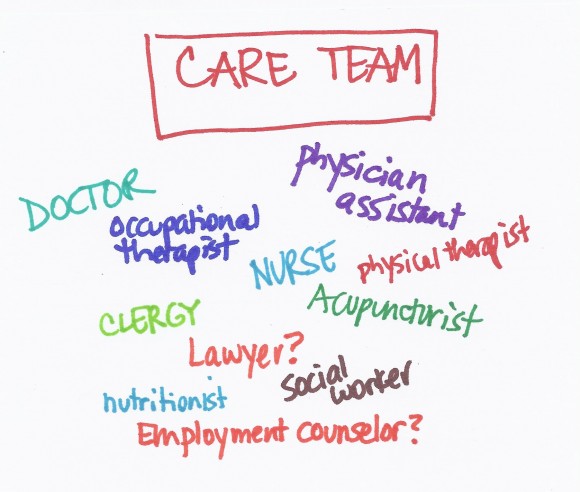Redefining the care team
 When I was in clinical practice as an infectious diseases specialist, most of my patients were very sick and hospitalized but I saw a small number of outpatients as well. They were often people who had nonspecific complaints and were convinced that they had a chronic infection that their doctors were missing. They often arrived with numerous records – laboratory tests results, x-ray reports and consultation letters from other doctors.
When I was in clinical practice as an infectious diseases specialist, most of my patients were very sick and hospitalized but I saw a small number of outpatients as well. They were often people who had nonspecific complaints and were convinced that they had a chronic infection that their doctors were missing. They often arrived with numerous records – laboratory tests results, x-ray reports and consultation letters from other doctors.
While it is certainly possible that these patients had an infectious disease that we don’t know about yet or that I had missed, many of them had significant stress in their lives – housing issues, trouble with their children or spouses, difficulites at work, etc. There is a lot of evidence that stress can lead to serious health issues including heart attacks.
The symptoms these patients had were real but some of them may have been a result of their stressful lives. Unfortunately, the healthcare system is not set up to help patients with the things in their lives that are causing the stress. So in order to get to the root cause of the patient’s problem in many cases, you need to look outside the healthcare system. I found myself frustrated working in a system that did not allow me to address the whole patient.
I heard an interesting piece on NPR several weeks ago entitled Lawyers Join Doctors to Ease Patients’ Legal Anxieties. A clinic in Akron, Ohio that serves low-income women, is experimenting with having a lawyer who specializes in housing and consumer issues as a member of the clinic team. The focus of the piece was that doctors and lawyers were working together but what I found exciting was that this clinic recognized the role of stress and other non-medical factors in the development of illness. The clinic is in the process of performing a research study to see if having a lawyer on-site in the clinic improves health outcomes. While many of the social issues facing the women in this clinic do not require a lawyer, the idea of trying to solve social problems in the clinic setting makes a lot of sense.
In addition to thinking about a team of people taking care of a patient rather than just a doctor, we also need to broaden our definition of the care team. I have written before about creating a team to take care of AIDS patients that included clergy, social workers, nutritionists, etc. But these team members were already working within the healthcare system. What if we used our imaginations to think about the other services patients need and provided these services within the confines of the healthcare system? Perhaps in addition to lawyers we should have employment counselors, housing experts, life coaches, consumer affairs experts, etc. available to patients being seen for medical problems. We need to think in innovative ways and try to get away from the traditional notion of a patient going in to see just a doctor for an appointment.
Perhaps if there were a lawyer, an employment counselor or a housing specialist in my outpatient practice, I would still be working as an infectious diseases specialist!
0 thoughts on “Redefining the care team”